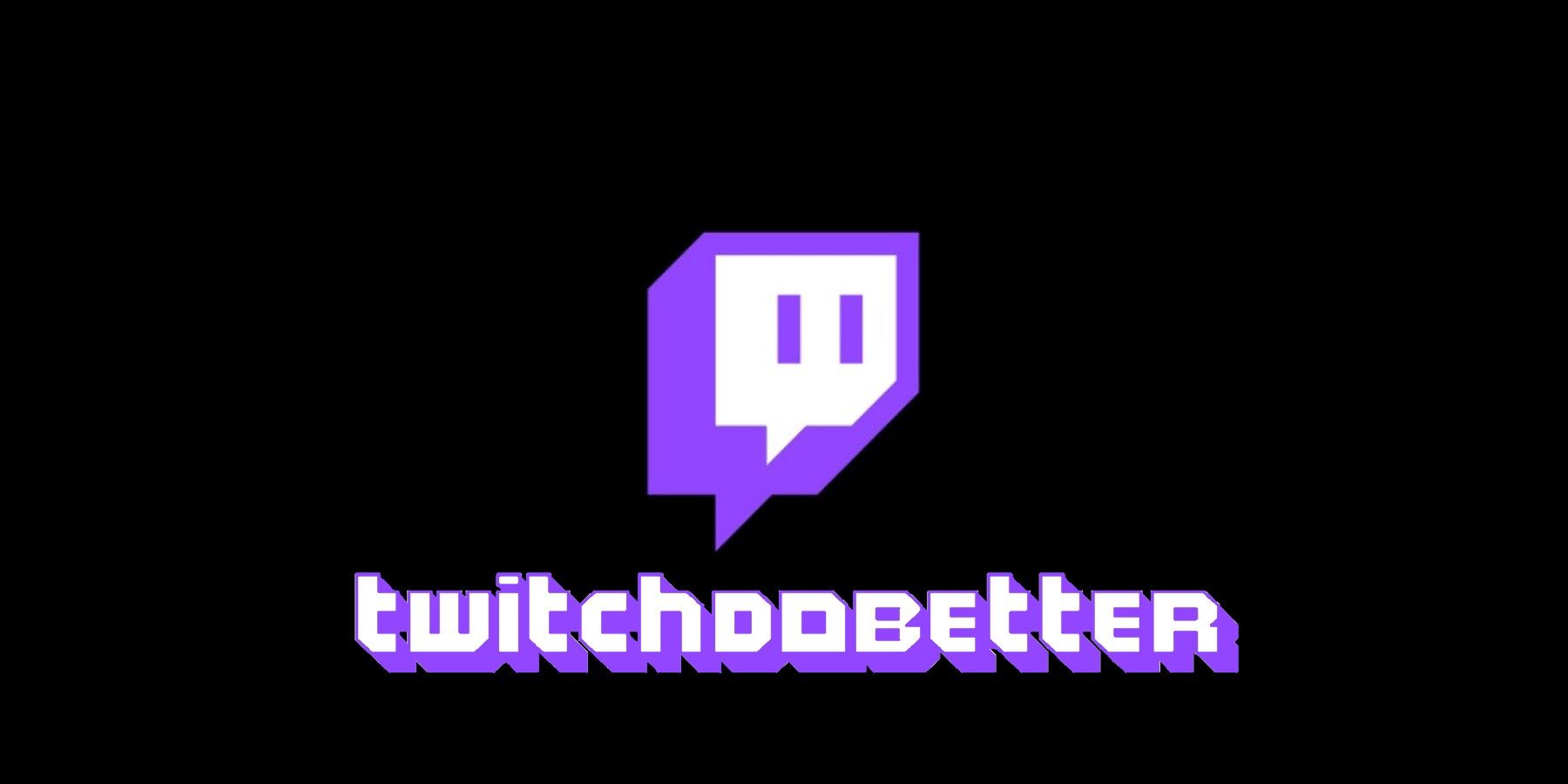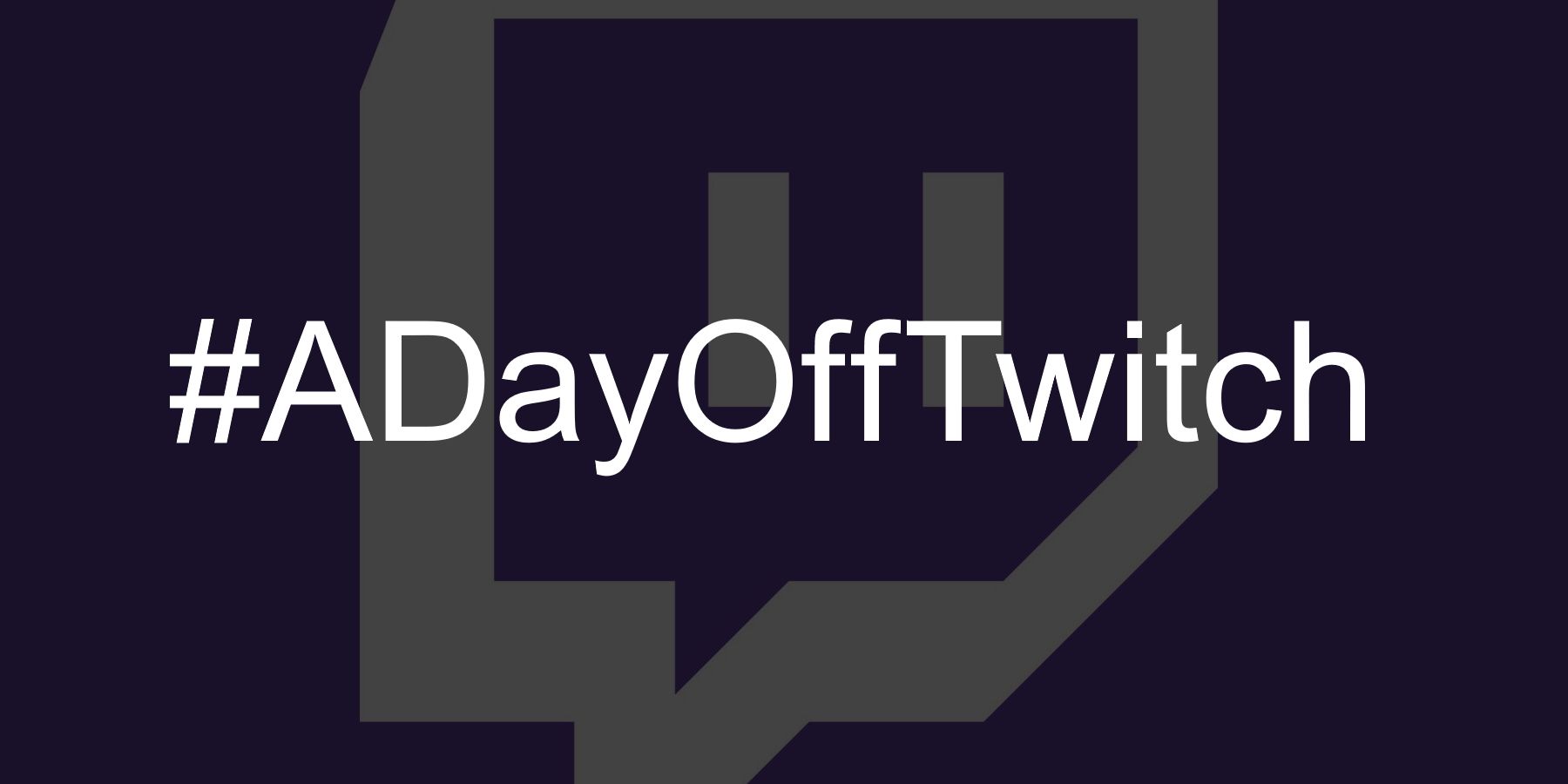Twitch has grown exponentially as a streaming platform in the past few years, though the site has had its fair share of controversies along the way. There was a time in which many creators moved from YouTube to Twitch as they felt Twitch was a more conducive atmosphere to create in. However, it seems the tides are turning somewhat as Twitch struggles to keep up with hate raids and other harassment issues.
The "Day Off Twitch" movement, in essence, is a boycott of the site for one day to draw attention to the ways in which the site is failing to protect its creators. With online streaming being many Twitch creators full-time jobs, the movement has divided some of the top streamers on the site who may believe in the message but not the action. However, while hashtag activism and boycotts do have limitations in their actionable power, Twitch is a site that relies on online users and having a good reputation, so the Day Off Twitch movement does have the potential to inspire some change on the site.
RELATED: Twitch Streamer Is Biking Across the Country in Honor of Fallen GTA RP NoPixel Players
Hate Raids and Previous Action By Twitch

Raids on Twitch involve huge numbers of people flooding a particular stream's chat, which often allows for big streamers to bring an audience to a smaller streamer and support them in that way. However, as with most things online, people have found a way to misuse this feature. Since setting up an account is relatively quick and painless, sock puppet accounts are often used to enact raids in which a streamer's chat is inundated with slurs, hateful messages, and insults.
Twitch's tag system also allows for these accounts to zero in on marginalized creators. As such the levels of toxicity on the site have been steadily rising, especially for more vulnerable creators whom Twitch should be supporting.
YouTube has come under scrutiny for toxic behavior on its site as well, and it has had serious ramifications including the #Adpocalypse. While there was not any major boycott for YouTube, it did damage the site's reputation and many users migrated to Twitch in the years following. As such, Twitch is reliant on its reputation as a better streaming platform, but continually Twitch is racking up its own controversies as well. A previous hashtag concerning this matter, #TwitchDoBetter, was circulating before the boycott was organized, and emphasizes how users just really want Twitch actually address this problem, rather than leaving it unchecked.
There are larger issues at hand than just the hate raids, of course, some of which are associated with Twitch and others just with the internet more broadly. A huge number of users feel the percentage of profit Twitch takes is unfair, and that it has a longer history of ignoring toxic behavior on the site. Ultimately, these issues plague a lot of online streaming services, but until it can figure out a solution, users will have trouble retaining any loyalty and likely migrate to another site.
RELATED: Twitch Streamer Hasan's House Controversy Explained
Day Off Movement and How to Get Involved

The Day Off Movement is simple, as it asks users to simply refrain from streaming Twitch content on Wednesday, September 1, 2021. Like any boycott, the intent is twofold: The first is to affect the company's daily revenue, which in the case of Twitch will take a lot of users' involvement.
While some criticize the movement for this reason, the argument that people should not get involved in activism because it will be pointless is a fallacy since change can't happen unless people get involved. As such, the more people that boycott Twitch for a day, the better. In terms of affecting revenue, the impact of a boycott is not instantaneous, and in the case of Twitch, it is more important how this affects their reputation. The boycott can therefore have more of an impact long-term.
The secondary intent in holding a boycott is to simply spread the word. In order to make any movement enact change, it does need some publicity. The hashtag activism trend often has negative associations, with most viewing it as not having any real impact. However, it is inarguable that movements like #BLM or #MeToo have not benefitted from hashtag activism. Furthermore, Twitch is an online service and so its reputation online is essential to its success. Having as many people talking about this movement as possible is one of the best ways to support it. Even those who oppose the movement are bringing attention to it, which is key.
Spreading the word is essential, and getting involved in the boycott is, for most people, an easy contribution to make. Of course, many users depend on the site for income, so not taking part in the movement doesn't make sense if it's only calling for a one-day boycott. The biggest opposition to this movement is apathy and the idea that this will have no impact.
The extent of the impact does depend on how many get involved, but the danger of apathy is that online streamers are not acknowledging that these problems could be solved, and it's not that hard to do. The Day Off movement is important for its part in a larger trajectory of demanding change when change is need, and with respect to hate raids, change is most certainly needed.
Supporting this movement is simply not letting the apathy win and bringing as much attention as possible to the changes needed because Twitch can and should do better. Taking to Twitter, Reddit, and other online platforms to voice support for the movement or to voice your concerns to Twitch directly. Ultimately, while Twitch has brought many online streamers a great deal of success and wealth, the platform cannot exist without its userbase and so users do have power in this situation.
Twitch and YouTube are currently the most popular streaming sites available, and so they should perform and treat their creators better knowing that they are the reason for this success. Whether this particular movement will cause any mass migration is uncertain, but it is clear if Twitch doesn't take action now then the site will become less and less viable for users and so lose its popularity.

